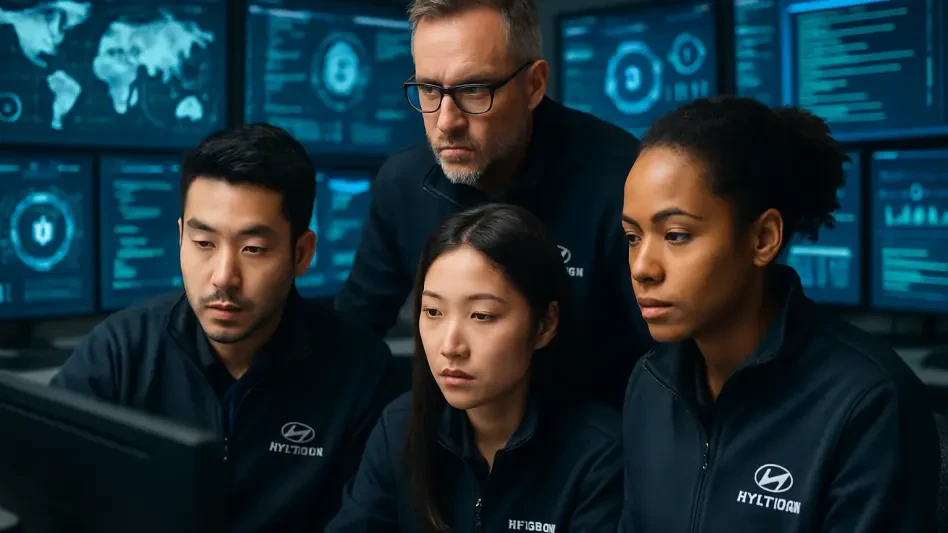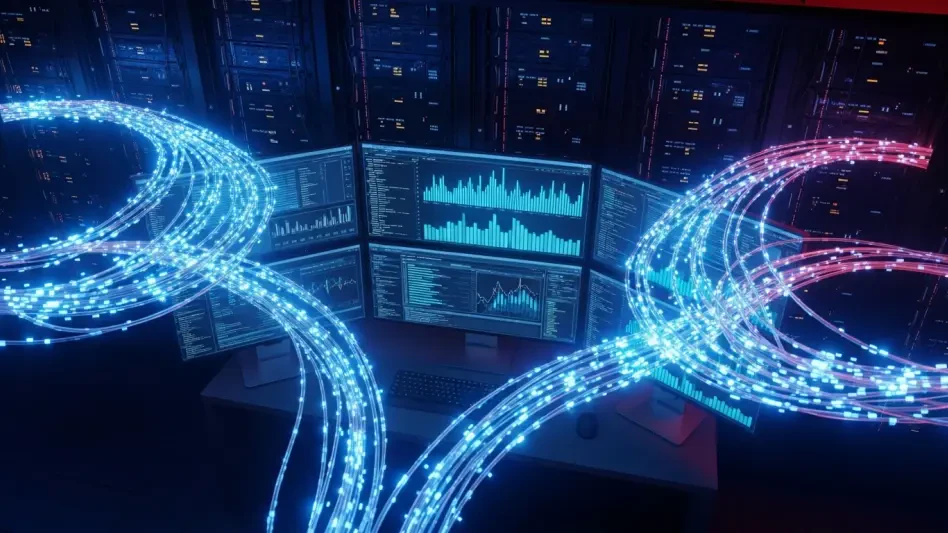In an era where connected vehicles are becoming the norm, the automotive industry faces an unprecedented wave of cyber threats that could jeopardize not only data but also passenger safety, prompting companies like Hyundai Motor Group to take decisive action. Hyundai Motor Group has taken a bold step to address this growing concern by establishing its first centralized cyber threat response team, a move designed to unify and strengthen security measures across all its brands and subsidiaries, including Hyundai Motor and Kia. This initiative marks a significant departure from the earlier fragmented approach, where each affiliate handled its own cybersecurity independently. By creating a group-level unit, the company aims to streamline vulnerability assessments, enhance threat monitoring, and improve incident response capabilities across its vast network of systems. This development comes at a critical juncture as vehicles evolve into complex software platforms, introducing new risks that demand robust, coordinated defenses to protect both technology and consumer trust.
Strengthening Defenses in a Connected Era
As vehicles increasingly rely on over-the-air updates, telematics, and mobile-to-vehicle data connections, they transform into intricate digital networks vulnerable to cyber-attacks like remote system control and data interception. Hyundai Motor Group’s decision to centralize its cybersecurity efforts reflects a deep understanding of these evolving risks, which extend beyond traditional IT concerns to impact vehicle safety and software integrity. The newly formed team, led by Yang Ki-chang, who also oversees Hyundai Motor’s Integrated Security Center, is tasked with fortifying defenses across the group’s operations. This includes safeguarding connected infrastructure and supply chains, which are increasingly targeted by sophisticated threats. By integrating security into the core of its business strategy, the company seeks to ensure that its technological advancements do not come at the expense of consumer safety or trust, positioning itself as a leader in addressing the unique challenges of the connected-car landscape.
The financial commitment to this initiative underscores its importance, with Hyundai Motor and Kia boosting their information security budget to approximately 62.14 billion won (about US$42.5 million) in the current year, reflecting a substantial increase from previous levels. Alongside this investment, the group has expanded its dedicated security workforce to around 262 employees, signaling a shift in perspective where cybersecurity is treated as a fundamental business function rather than a secondary concern. This strategic focus aims to create a unified front against cyber threats that transcend individual affiliates and global operations. The centralized unit will implement standardized tools and policies, ensuring consistency in how threats are identified and mitigated. This move not only addresses immediate vulnerabilities but also builds a foundation for long-term resilience in an industry where cyber risks are becoming as critical as physical safety standards.
Aligning with Industry Trends and Governance
Hyundai Motor Group’s centralized cybersecurity approach mirrors a broader trend among global automakers grappling with escalating cyber threats, including high-profile breaches and ransomware attacks that have disrupted production and tarnished reputations. The urgency of this shift is evident in reports from the Korea Internet & Security Agency (KISA), which highlight the scale of the challenge and the industry’s growing recognition of cybersecurity as a top priority. By consolidating its efforts, the group can respond more swiftly to incidents, coordinate strategies across affiliates, and apply uniform standards that enhance overall protection. This alignment with industry best practices demonstrates a proactive stance in an environment where cyber risks are no longer isolated to specific regions or units but pose systemic challenges that demand collaborative solutions across the entire automotive ecosystem.
Operationally, the creation of this central unit integrates cybersecurity into the highest levels of decision-making within Hyundai Motor Group, enabling faster and more effective responses to emerging threats. This structural change redefines governance by positioning security as a group-wide pillar rather than a fragmented responsibility handled separately by each subsidiary. Consolidated metrics on incident response, threat detection, and compliance are expected to be reported to auditors, regulators, and the company’s board, fostering greater transparency and accountability. Such measures ensure that cybersecurity is not just a reactive process but a strategic element woven into the fabric of the organization’s operations. This comprehensive approach sets a benchmark for how automakers can adapt to the digital age, where the stakes of protecting connected technologies extend far beyond traditional automotive concerns to influence regulatory compliance and market competitiveness.
Building a Secure Future for Automotive Innovation
Looking back, Hyundai Motor Group’s establishment of a centralized cyber threat response team marked a pivotal moment in recognizing that cyber risks were integral to the future of automotive innovation. The substantial investment and organizational restructuring that accompanied this initiative demonstrated a clear commitment to staying ahead of threats in an increasingly connected world. By unifying security efforts under a single framework, the group tackled immediate vulnerabilities while laying the groundwork for sustained resilience against evolving challenges. This strategic foresight not only protected critical systems but also reinforced consumer confidence in the safety and reliability of connected vehicles.
Reflecting on this milestone, the path forward for the automotive industry involves continuous adaptation to emerging cyber threats through collaborative efforts and innovative solutions. Automakers must prioritize integrating advanced security technologies and fostering partnerships with cybersecurity experts to anticipate risks before they materialize. Hyundai Motor Group’s model offers a roadmap for others, emphasizing the importance of embedding security into every layer of business operations. As the landscape of connected vehicles continues to expand, adopting such proactive measures will be essential to safeguard technological progress and maintain trust in an era where digital and physical safety are inseparable.








